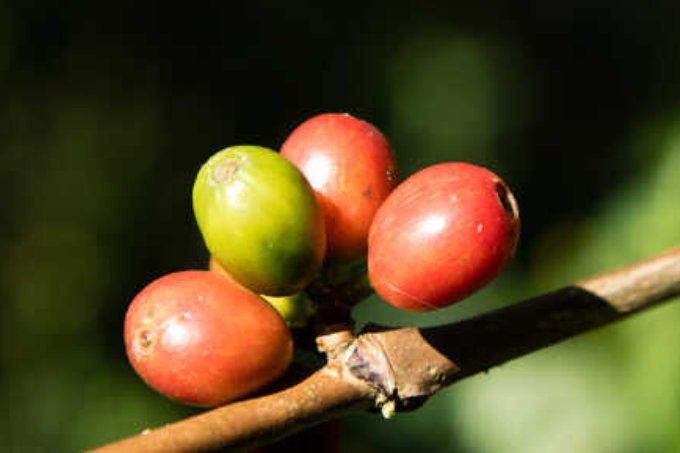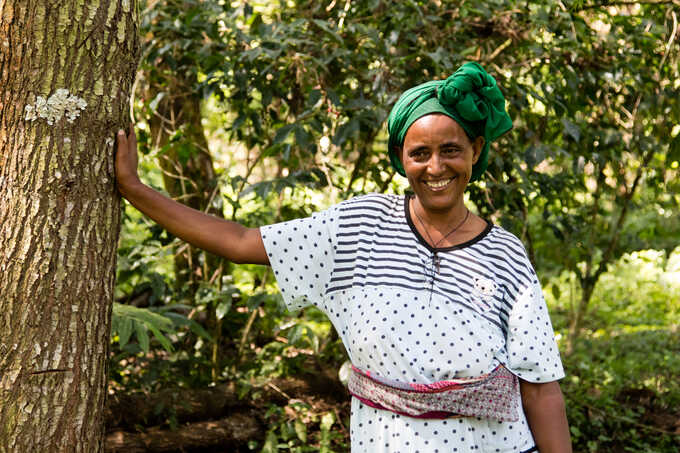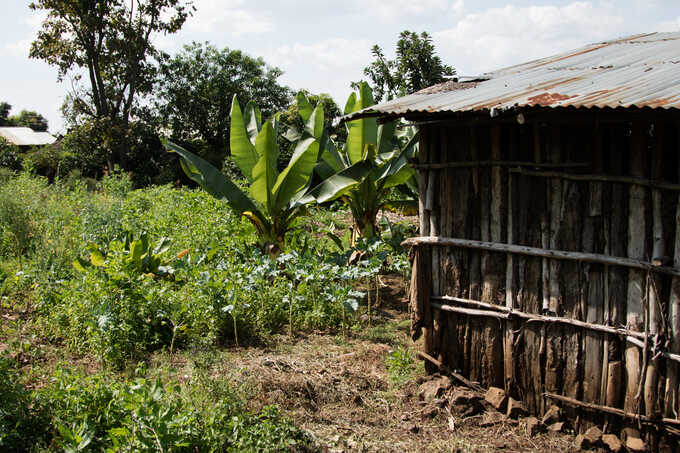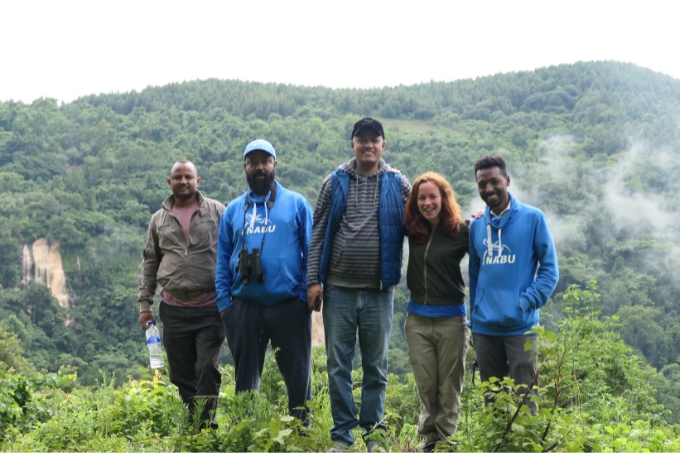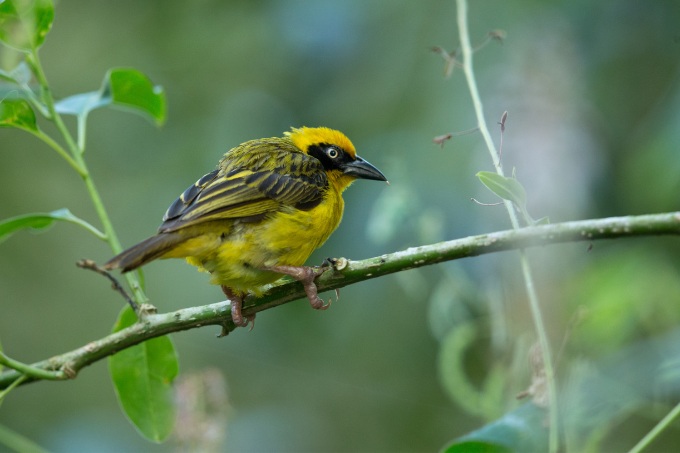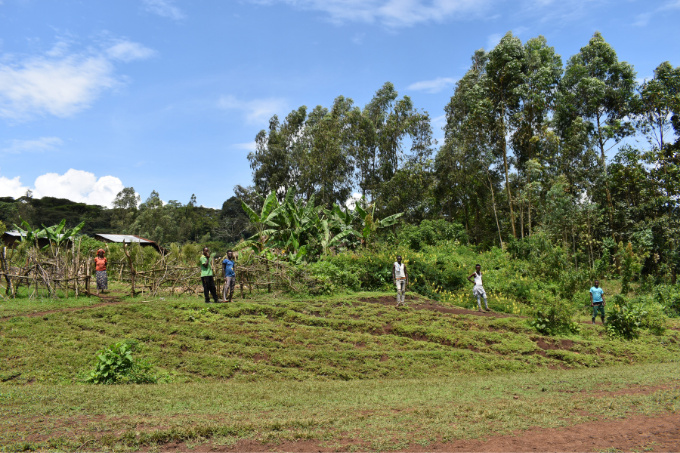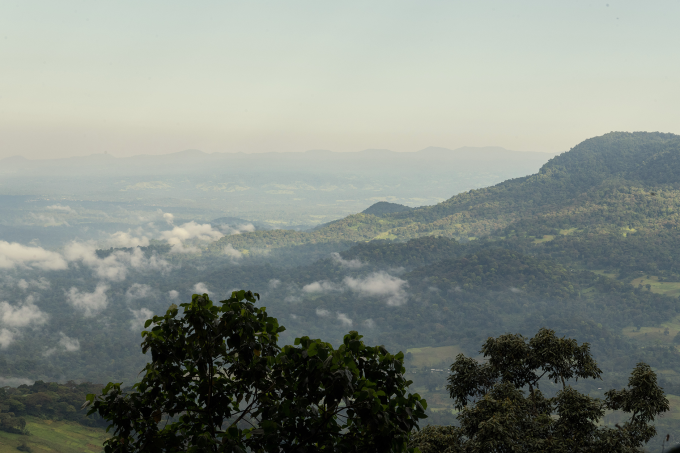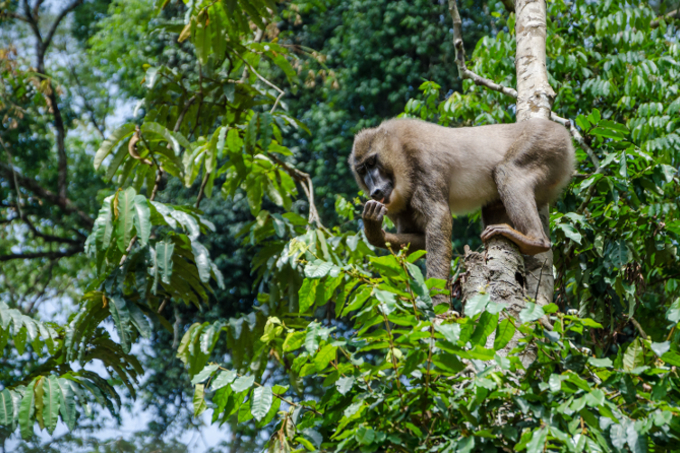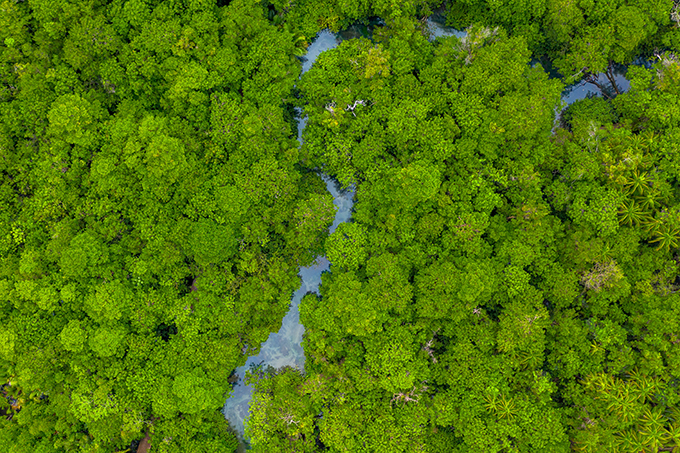Green Change
Women and Youth as key actors for socio-ecological change in the Yayu Coffee Forest Biosphere Reserve
The Yayu Coffee Forest Biosphere Reserve in the southwest of Ethiopia encompasses forests, wetlands and numerous rivers, farmlands and pastures. The diverse ecosystems are home to abundant diversity of flora and fauna. The biosphere reserve harbours one of the last remaining populations of wild Arabica coffee (Coffea arabica) in the world.
The local population earns the majority of its subsistence but also income from agriculture and forestry, for example through the cultivation of coffee, fruits and spices. The traditional extensive land use system of the area is under high demographic and climate-crisis related pressures. The consequences are scarcity and overuse of natural resources, threatening the future of the biosphere reserve and livelihoods. Young people and women are especially impacted by these developments, as they have only limited opportunities of participation, low decision-making power and few options to engage in entrepreneurial activities.
In order to strengthen the resilience of people and nature against the forces of the climate crisis in the Yayu Coffee Forest Biosphere Reserve, the project conducts targeted activities to support:
- green entrepreneurship among women and young people
- the onpassing of traditional knowledge on resource use
- the cultivation and distribution of old, climate-resilient varities in home gardens
- agroforestry-based methods of cultivation
- the establishment and empowerment of women's groups in marketing of home garden products
The Yayu Coffee Forest Biosphere Reserve
The biosphere reserve stretches over 167,000 hectares and harbours one of the last intact afromontane rainforest areas, which serves as a refuge for a multitude of animal and plant species. Wild Arabica coffee also grows here, and secures the income of local communities. Due to its high ecological and cultural value, the region was designated in 2010 as a UNESCO Biosphere Reserve and placed under protection.
Learn more-
A home garden with various crop species, including dwarf bananas and coffee - photo: Mathias Putze
-
We are implementing the project in southwest Ethiopia together with NABU Ethiopia - photo: NABU
-
The Yayu Coffee Forest Biosphere Reserve distinguishes itself by its unique biodiversity. One example is the Speke's weaver: a species only found in East Africa - photo: Mathias Putze
Project facts
Project title
Green Change - Women and Youth as key actors for socio-ecological change in the Yayu Coffee Forest Biosphere Reserve
Country / region
Ethiopia, Oromia – Yayu Coffee Forest Biosphere Reserve
Period
February 2024 – June 2027
Partner organisation
NABU Ethiopia
Financed / supported by
Federal Ministry for Economic Cooperation and Development (BMZ)
The Nature And Biodiversity Conservation Union (NABU)
With this project we are contributing to the following Sustainable Development Goals (“SDGs”) of the United Nations:
1, 2, 5, 12, 15, 16
RELATED PROJECT
By capacitating coffee farmers for better yields and climate resilience, supporting local communities with forest-oriented income and sustaining the biosphere reserve and its ecosystems, we aim to maintain the unique forests of Yayu Biosphe Reserve. more →
MORE
Fragmentation and degradation are threatening Ethiopia's diverse forest landscapes and thus the country's biodiversity and food security. In Southwest Ethiopia, NABU and its partners are therefore implementing action plans to restore the precious forests. more →
Iko Esai in Nigeria, Africa, is home to precious tropical rainforest and extraordinary biodiversity, including gorillas, chimpanzees and forest elephants. In collaboration with local communities and partners, NABU protects the forest and secures livelihoods. more →
The protected area Mahavavy-Kinkony in Madagascar suffers from degradation of its coastal ecosystems. NABU and ASITY Madagascar joined forces supporting communities for restoring ecosystems, improving livelihoods and responding to the impacts of climate change. more →

